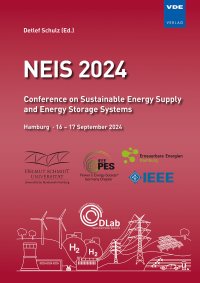Effects of the use of grid-forming converters on the islanding detection of existing low-voltage systems
Konferenz: NEIS 2024 - Conference on Sustainable Energy Supply and Energy Storage Systems
16.09.2024-17.09.2024 in Hamburg, Germany
doi:10.30420/566464016
Tagungsband: NEIS 2024
Seiten: 6Sprache: EnglischTyp: PDF
Autoren:
Winter, Bjoern Oliver; Schulz, Nelly; Engel, Bernd
Inhalt:
Unintended islanding refers to the disconnection of a grid section in the wake of faults and uncontrolled continued operation of this section detached from the interconnected grid by chance. This condition should be avoided at the low-voltage level in particular, especially to ensure protection of maintenance personnel during repair work and to prevent damage to devices and equipment or blockages of grid protection systems, such as autoreclosers that require underlying grids to be shut down when attempting automatic reconnection. Therefore, current inverters are equipped with methods that recognize this condition and disconnect from the mains. It is believed that grid-forming technologies increase the risk of these islands developing and operating uncontrollably. There is therefore a need to investigate the effects of their future integration into the grid and, if necessary, to develop measures to safely detect and prevent the unwanted formation of islanded grids. The integration of grid-forming converters into the interconnected grid raises the question of how this will affect the ability of existing systems to detect islanding. This paper first summarizes the current results around the implications for using grid-forming converters in low-voltage grids on islanding as a basis for discussing new research results on performing tests for future islanding detection methods that aim to ensure reliable islanding detection in multi-inverter- and more realistic grid setups.


